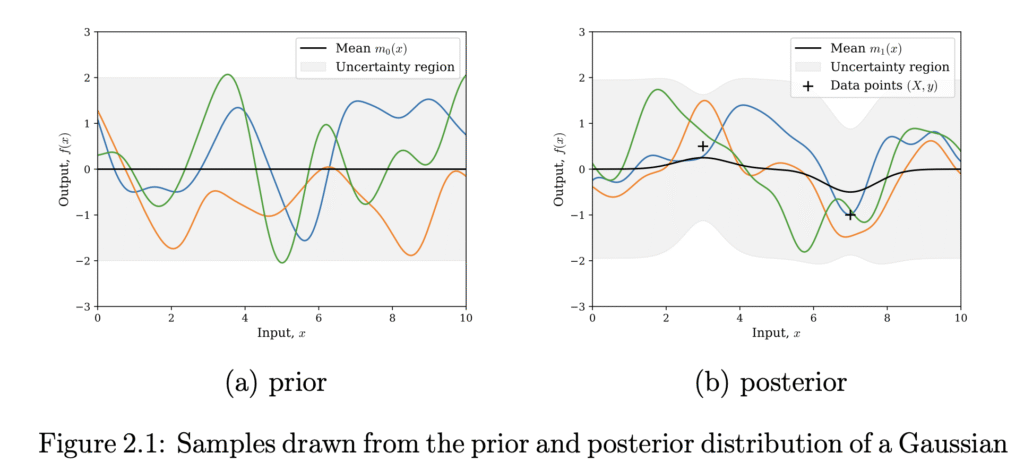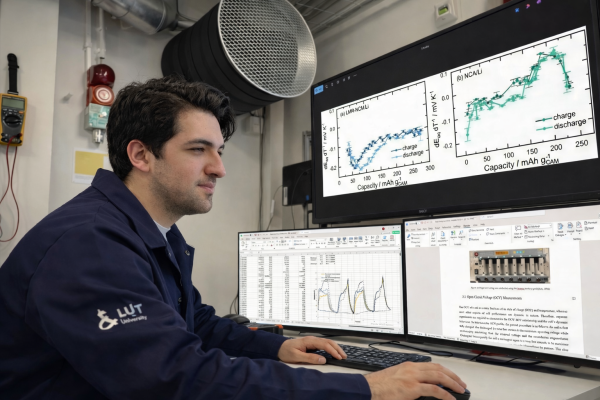Åbo Akademi University strengthens its role in sustainable technology development with a new thesis that advances experimental design in clean propulsion research. Amanda Björkvik, who recently completed her Master’s degree in Applied Mathematics, has developed a dynamic framework that supports more efficient and data-driven experimentation in high-stakes engineering contexts.
Her thesis, conducted within the Flexible Clean Propulsion Technologies (Flex-CPT) project and co-funded by Business Finland, aims to improve how researchers plan and execute experiments, which focuses on experimental optimization and system modelling. By developing a framework based on sequential Bayesian experimental design, Amanda addresses how to gain the most valuable information from the fewest and most strategic experiments.
“I have always been interested in how mathematics can be used to make decisions,” Amanda reflects. “This thesis project was an excellent opportunity to explore that further.”
Amanda began her studies in mathematics at Åbo Akademi University in 2019, immersing herself in a variety of mathematical disciplines. Over the course of her academic journey, she developed a keen interest in real-world applications, particularly in areas involving intelligent systems and decision-making. That interest took shape in her thesis, where she applies Bayesian statistics to predict which experiments are likely to yield the most information.
To model the process or system being studied, Amanda employed Gaussian process regression, a method well suited to capturing unknown and complex behaviours. The resulting framework does not rely on intuition or fixed test schedules. Instead, it adapts dynamically by selecting the next most informative step as new data becomes available. While the design is general, its flexibility allows it to be tailored to many types of research challenges.
“The aim of the thesis was to create a more general framework for Bayesian experimental design, which could be used in various different applications,” Amanda explains.
Her work is especially relevant within WP1, where experimental efficiency is critical to the success of many other technical developments within Flex-CPT. Under the leadership of Professor Maciej Mikulski from the University of Vaasa, WP1 provides foundational methods that support everything from component testing to system-level evaluation. Amanda’s contribution brings mathematical structure to this effort by offering a reusable and data-driven approach to experiment design.
Among the most innovative aspects of the thesis is the use of Quantities of Interest (QoIs) to formally define experimental goals. Rather than treating outcomes loosely, Amanda’s framework allows researchers to precisely define what they are aiming to achieve. The QoI can be tailored to virtually any aspect of a system. Her work also explores how this concept can be extended to multidimensional QoIs, where multiple objectives are considered simultaneously.
“This level of customizability is fascinating,” she says. “Expanding the available research through multidimensional QoIs was the most rewarding aspect of this project.”

The work also acknowledges significant complexity. One of the main challenges Amanda encountered was the computational demand of the methods used. The numerical solvers involved in Bayesian experimental design are resource-intensive, and in more complex applications, this can limit their practicality. Amanda notes that developing faster and more efficient solvers remains an important direction for future research, although it falls outside the scope of this thesis.
Still, the potential applications are considerable. The framework is well suited to situations where the optimal next experiment is not immediately clear, and it offers structured guidance for researchers faced with uncertainty and limited resources.
“I hope these methods can be used to guide experimental designers wherever decisions need to be made carefully and efficiently,” she says.
The thesis was supervised by Professor Anders Brink and Dr. Mikael Kurula, both of whom supported the development of a project that now stands as a testament to the practical power of applied mathematics. By bridging statistical theory with real engineering challenges, Amanda Björkvik’s work provides researchers in clean propulsion and related fields with new tools to design smarter, more effective experiments. She is now looking toward a career in consulting, where she can apply her mathematical expertise to solving complex, real-world problems.



